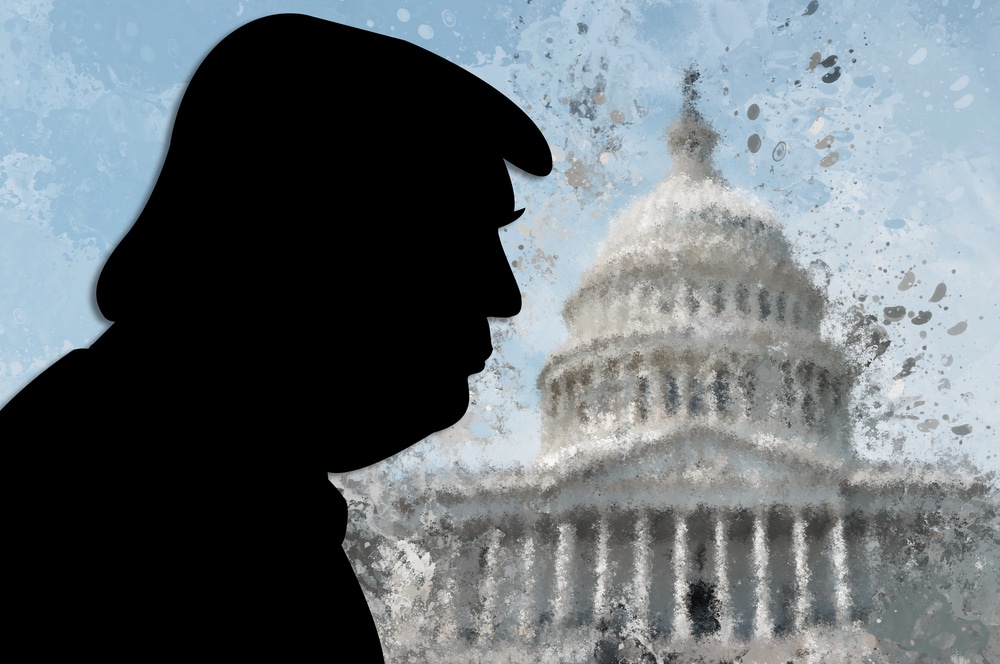The incoming Donald Trump administration seems determined to wage as many economic wars as it can. The president-elect reportedly plans to pursue another “maximum pressure” campaign against Iran with the goal of “bankrupting” the country. Now he is threatening new trade wars with Mexico, Canada, and China at the beginning of his second term. Trump has favored using broad sanctions and tariffs as weapons to try to force other states to give in to American demands, and coercion seems to be the only approach that he understands. As one Trump foreign policy adviser said to The Wall Street Journal, “His whole worldview is maximum pressure, it’s that simple.”
Economic wars can be just as devastating as armed conflicts in some respects, and sometimes they can be worse. Broad sanctions strike the entire population and can cause widespread poverty and hunger. Economic warfare makes no distinction between the civilian population and their political leaders, and typically it is the weakest and most vulnerable people in a country that suffer most from this form of collective punishment. “Maximum pressure” campaigns in Venezuela, Iran, and North Korea have been responsible for depriving people of essential food and medicine by making it difficult or impossible to import needed goods or by destroying the people’s purchasing power and making goods prohibitively expensive.
Unlike states targeted by sanctions, the states targeted in trade wars have the means to fight back more directly. Trade wars do more immediate and obvious harm to the United States by needlessly increasing the costs for consumers and businesses. Like sanctions policies, trade wars penalize the poorest most of all and cause unnecessary hardship for everyone else. Far from putting American interests first, trade wars hurt American citizens first and then continue hurting them.
What all these policies have in common is that Trump is trying to compel other states to agree to maximalist or impossible demands on pain of severe economic punishment. Trump’s economic wars are not going to achieve anything except to impoverish more people. These wars are just another form of mindless “do-somethingism” where the government harms innocent people so that they can say that they are addressing a problem while doing nothing to resolve it.
If Trump’s first term proved anything, it’s that other states cannot be so easily intimidated through economic warfare. Pressure usually provokes defiance and resistance. When the targeted country is one that has a history of being bullied or attacked by the United States, it is even more likely that a pressure campaign will blow up in Washington’s face. In the case of Iran, “maximum pressure” caused an expansion of Iran’s nuclear program, increased tensions, greater regional instability, and attacks on American troops in the region. It very nearly resulted in a war. The U.S. has continued waging the same economic war under Joe Biden, and Iran’s nuclear program is now more advanced than it has ever been. By any measure, “maximum pressure” has made everything worse.
The initial responses from some of the threatened countries suggest that Trump will be no more successful this time around. Iran’s Foreign Minister Abbas Araghchi warned, “Maximum Pressure 1.0 compelled Maximum Resistance and ended in Maximum Defeat for the US. The proof? One example: just compare Iran’s peaceful nuclear program before and after the so-called ‘Maximum Pressure’ policy.” Mexican President Claudia Sheinbaum responded to Trump’s tariff threat with the promise of retaliation, “One tariff would be followed by another in response, and so on until we put at risk common businesses.” Policies based on threats and coercion frequently fail or backfire, as Trump’s own record confirms.
Araghchi and Sheinbaum have both called for a more rational approach. The foreign minister suggested the alternative of “maximum wisdom,” which presumably would involve serious negotiations to repair the damage caused by Donald Trump’s original decision to renege on the nuclear deal. Sheinbaum said that dialogue is the “best path to achieve understanding, peace and prosperity for our two countries.” The Iranian government has already been signaling for months that it is interested in new negotiations on the nuclear issue, so there is no need to force them to come back to the table. The Mexican government is open to cooperation, but it is not going to be strong-armed into it.
More threats and punishments will just create new obstacles to productive negotiations. If Trump were genuinely interested in resolving disputes and problems with these other countries, he would abandon his coercive tactics and try something else. Unfortunately, Trump doesn’t seem to know any other way. To make matters worse, he has filled his administration with hardliners that share his preference for coercion despite its poor track record.
The United States should seek to have peaceful relations and commerce with as many countries as possible. As George Washington said in his Farewell Address, “Observe good faith and justice towards all nations; cultivate peace and harmony with all.” Waging economic wars on other countries is the opposite of all these things. Instead of wielding economic weapons to bludgeon other states into following Washington DC’s orders, our government should set these weapons of intimidation and coercion aside and engage with potential partners in respectful dialogue.
































